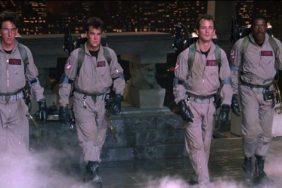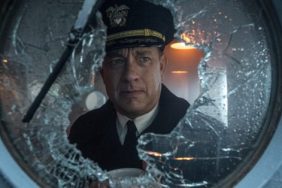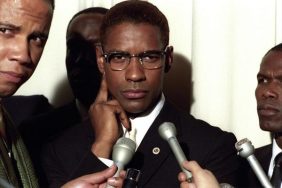Movies didn’t invent the historical epic – history did a pretty good job of that all by itself – but with the invention of the moving image, audiences were able to completely immerse themselves in eras that would otherwise be completely inaccessible. Architecture, costumes, wars, music and whole societies could spring to life through the wizardry of the filmmaking process, and as such many of the most popular movies ever made are those that transported the viewer to those long-lost eras.
But what is the best historical epic ever made? We asked our panel of film critics – Crave’s William Bibbiani and Witney Seibold, and Collider’s Brian Formo – to each present their picks for just one film that represents the pinnacle of the genre. As usual, they couldn’t agree on a thing, and selected far-ranging films like Oscar-winning war films, movies about piracy on the high seas, and an ambitious musical biopic.
Find out what they picked and why, and come back next Wednesday for an all-new, highly debatable installment of Crave’s The Best Movie Ever!
William Bibbiani’s Pick: Gone With The Wind (1939)

MGM
When I think of historical epics, I think of history itself in all of its vast, powerful and sometimes embarrassing splendor. “Vast, powerful and sometimes embarrassing splendor” are very good words to describe the 1939 Best Picture-winner Gone With The Wind, perhaps the most handsome motion picture ever produced, and one that romanticizes the American South before, during and immediately after the Civil War.
It’s a context that makes some people uncomfortable, and understandably so, but Gone With The Wind has always been very critical of its selfish white heroes. The film’s protagonist, Scarlett O’Hara (Vivien Leigh), is a scheming debutante who is more concerned with unrequited love than the affairs of the world. Life, and indeed the whole country, comes crashing down and Scarlett begins a cycle of self-preservation that saves the family estate but denies her genuine, personal happiness. She is a powerful and inherently tragic figure, one whose life is spent enjoying or enduring the influence of war and politics.
Scarlett is distinct and detailed, and yet she seems larger than life. That’s the sort of character many writers spend their whole careers trying, and usually failing, to create. And she’s just one of many wonderful characters who populate the sprawling tapestry that director Victor Fleming (with help from many others) crafted in 1939. It’s a four-hour film that absolutely flies by.
And yes, keep historical context in mind as you watch it, and have a meaningful conversation about the experiences that Gone with the Wind glosses over, but don’t completely ignore the incredible craftsmanship of filmmakers who didn’t yet know better.
Brian Formo’s Pick: The Music Lovers (1970)

MGM
There are many great historical epics. Traditionally they inspire or remind us to not repeat ourselves. But the film I’m going to choose elicited this response from one of the all-time great film critics, Pauline Kael: “You feel (like) you should drive a stake through the heart of the man who made it.” It is The Music Lovers and the man who made it is Ken Russell. Historically speaking, The Music Lovers follows the doomed heterosexual attempts by famed composer Pyotr Tchaikovsky (Richard Chamberlain) as he rises through the musical world by turning his back on his homosexuality and takes part in a sham of a marriage. It’s about the power of music but it’s also about the destructiveness of withholding sex—from one’s self and from others.
After potentially outing himself to the veteran composers of The Mighty Five, Tchaikovsky chose his wife from a series of love letters that she had written him without ever meeting him. In his mind, because she only knew his music that is all that she needed to love him. But Antonia (an amazing Glenda Jackson) needed more than his music. She also needed sex to feel loved. That sentence might sound crass and Russell does sometimes present it as so, but it’s also heartbreaking. There is humiliation in both turning down someone for sex and in being turned down.
There is a magnificent scene on their honeymoon where Tchaikovsky specifically gets Antonia very drunk on a train so that he won’t need to have sex, but she still tries. She passes out naked on the floor of their train car and the bumps of the tracks make her body violently sway back and forth; Tchiakovsky looks in horror at her vulnerable body. It’s this horror of sexuality that perhaps provoked the stake reaction from Kael. For Russell, as a director, is anything but classical. He, like Tchaikocsky here, was new on the scene in 1970. And he radicalized what could be done with a historical epic. This isn’t David Lean. This is a film that re-enacts the visions we create when he hear music. And one that looks at an insane asylum as a breeding ground for, well, insanity. This is the most unusual and loud film to ever receive the brushstrokes generally reserved for adventure epics.
Witney Seibold’s Pick: Master and Commander: The Far Side of the World (2003)

20th Century Fox
It seems that modern Hollywood – or perhaps, more accurately, modern audiences – doesn’t have patience for historical epics any longer. The bulk of massive blockbusters in the last decade have typically been fantasy films and technology-based actioners. One may argue that something like Lord of the Rings scratches the historical itch (it’s an imaginary version of medieval England, after all), but actual history seems to be left in the classroom. There was a time when vainglorious historical histrionics were the word of the day, and super-melodramas like Ben-Hur (the 1959 version) could capture the world’s eye.
This is a pity, as special effects technology and a recent trend toward historical accuracy could make, in 2016, for some of the most spectacular films imaginable. Instead we get clunky crap like Pompeii, 300, and Gladiator. Limp, inaccurate films that focus on anachronisms and modern action filmmaking more than high drama, character, or history.
One more recent film, however, managed to use special effects, research, and large characters to accurately and gloriously capture historical glory: Peter Weir’s Master and Commander: The Far Side of the World, perhaps one of my favorite movies, and one to have appeared in Best Movie Ever before. Master and Commander, based on the famously accurate maritime novels of Patrick O’Brien, is a slice of life aboard a scrappy British vessel, the HMS Surprise, which fought against Napoleon’s better-equipped forces. The film comes from a masculine tradition of soldierly film, but slows the pacing and plays calming music to allow for a more contemplative and compelling tone. Capt. Jack Aubrey (Russell Crowe) is also a level-headed commander, and his relationship with Dr. Maturin (Paul Bettany) is intriguing and believable. They kind of mock one another, but there is a deep respect there. It’s a damn fine film, historically accurate, and glorious to behold.








